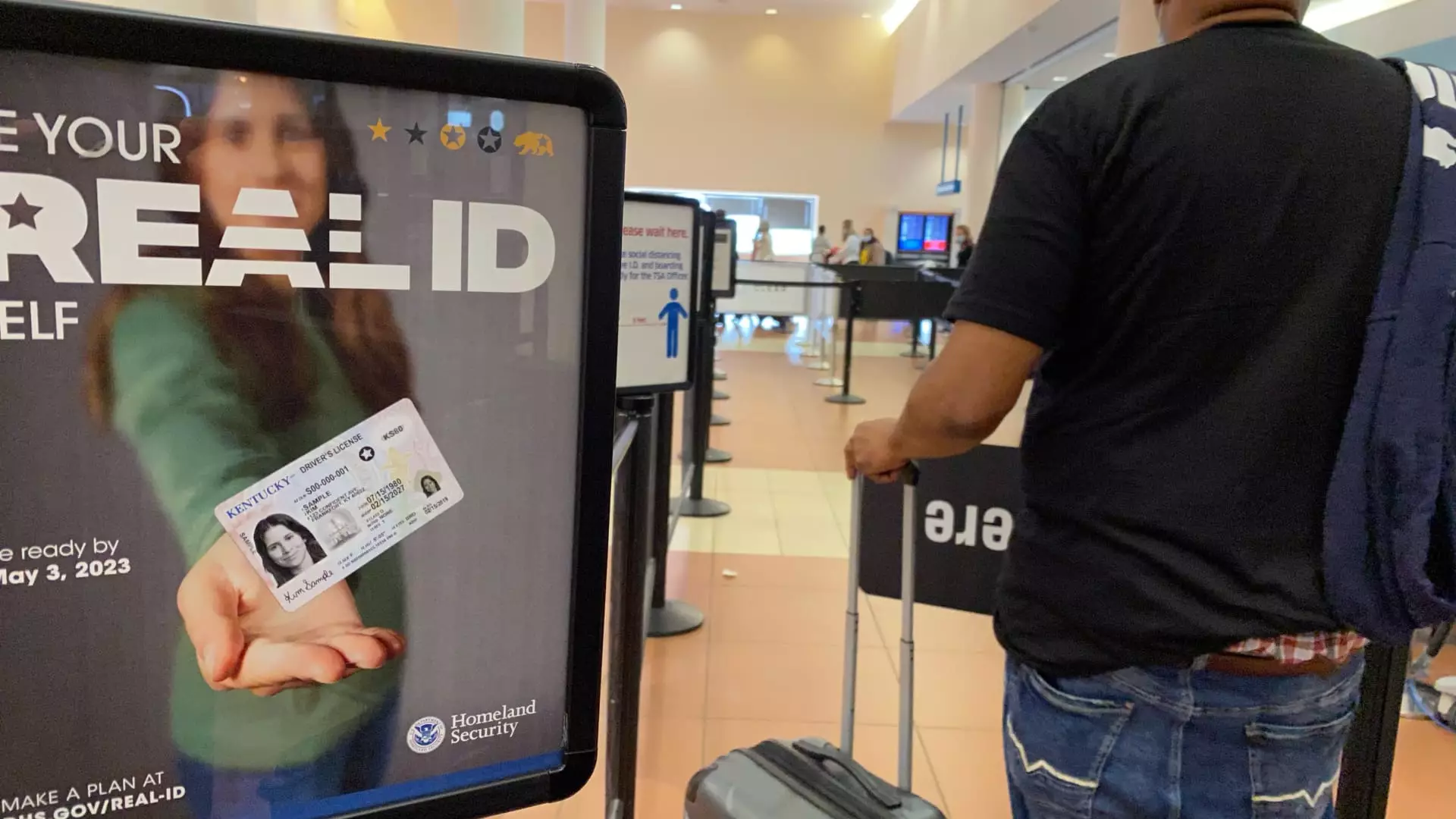As we approach the long-anticipated enforcement date of Real ID requirement on May 7, travelers are left with mixed feelings. This initiative marks a significant turning point in U.S. domestic air travel, ushering in a new era that promises stricter security measures. Yet, the question arises: is this step necessary, or is it merely a bureaucratic maneuver that instills fear without addressing root issues? The Real ID program, designed in response to the terrorist attacks of September 11, has evolved from a mere suggestion into a mandate that individuals must comply with or risk being delayed or barred entirely from flying.
The intention behind this requirement is undoubtedly noble—enhancing security for air travel in a post-9/11 world. However, amid this push for compliance, a concern looms: will this erode the autonomy and trust that many travelers cherish? The more we allow security measures to invade our personal freedoms, the more we might inadvertently encourage a culture of surveillance that can spiral into overreach.
Disparity in Access to Real ID
While 81% of travelers are reportedly compliant with having a Real ID, this number starkly highlights a critical underlying issue. This compliance is not consistent across all states, nor is it attainable for everyone. The requirement puts undue pressure on individuals living in states where obtaining a compliant ID is complicated, cumbersome, or even inaccessible. Appointments at motor vehicle departments are becoming scarce, resulting in many travelers anxiously scrambling in the weeks leading up to the deadline.
Moreover, the impression that this ID is merely a piece of plastic belies the frustration it instigates among those who feel the process is biased against those less fortunate. Not everyone has the means or time to race to get a Real ID. By demanding a specific form of identification, the government risks alienating individuals who may already face barriers, amplifying existing inequalities under the guise of uniform safety.
Propaganda or Practicality?
One striking aspect of the Real ID narrative is its marketing strategy; the flyers, social media updates, and banners are pushing an information campaign that resembles propaganda more than practical assistance. The TSA, airlines, and other stakeholders are scrambling to communicate the new requirements, yet the tone often veers towards creating a sense of panic rather than fostering a helpful environment for travelers preparing for this change.
By framing this required compliance as an urgent obligation—rather than providing adequate resources and solutions for those lagging behind—officials risk alienating travelers even further. It breeds an environment of anxiety rather than one of collaboration. Legislative measures should prioritize proving convenience without compromising personal freedom and well-being.
The Question of Real Security
Real ID compliance touts an ideal of security, but it raises crucial questions: does a compliant ID guarantee true safety? No security measure can achieve absolute protection, and placing too much faith in identification alone fosters an illusion of safety that can lead to complacency. The Real ID rolls out as a safeguard against terrorist activities, but it may in fact create a false sense of invulnerability.
Instead of obsessing over compliance with specific ID requirements, authorities should encourage a more nuanced understanding of security. Perhaps the focus should shift toward comprehensive airport security training, enhanced passenger behavior analysis, and better intelligence-sharing among security agencies.
Moving Forward Amid Uncertainty
As we move closer to the compliance deadline, the pressure mounts on travelers. The TSA’s assertion that those without a proper ID may face delays or additional scrutiny is another layer of burden many might not be equipped to handle. Moreover, it flatly disregards the narrative of customer service that airlines are supposed to embrace. Why should individuals endure additional stress because of systemic inadequacies?
In systems where identification serves both as a method of control and a means to access essential services, we must question how much we are willing to sacrifice in the name of safety. The Real ID initiative invokes an essential conversation about identity, security, and personal freedom, encouraging an urgent need to voice dissent against the bureaucratic machinations that seek to dictate our travel experiences in an increasingly complex world.

Leave a Reply